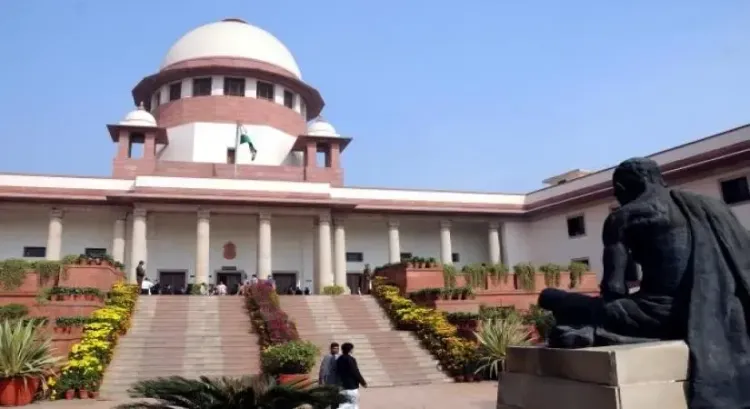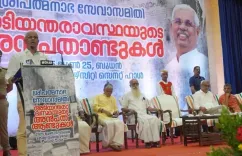Why Did the SC Deny Bail to PFI Founding Member on Medical Grounds?

Synopsis
Key Takeaways
- The Supreme Court denied bail to A.S. Ismail on medical grounds.
- A.S. Ismail is a founding member of the banned PFI.
- The PFI has been accused of terrorist activities across multiple Indian states.
- There are ongoing investigations involving the NIA and ED regarding the PFI.
- The Delhi High Court mandated medical treatment for A.S. Ismail in custody.
New Delhi, June 25 (NationPress) The Supreme Court on Wednesday refused to grant bail to A.S. Ismail, a founding member of the banned organization, the Popular Front of India (PFI), citing medical reasons. A Bench comprising Justices K.V. Viswanathan and N.K. Singh issued a limited notice to assess if the physiotherapy services available in Tihar Jail-3 could be extended to the petitioner, currently held in Tihar Jail-1.
The Justice Viswanathan-led Bench instructed that a copy of A.S. Ismail’s petition be provided to Additional Solicitor General (ASG) Archana Pathak Dave for further instructions, scheduling the next hearing for June 27.
Previously, the Delhi High Court had rejected A.S. Ismail’s appeal contesting the Patiala House Courts’ refusal of his bail request on medical grounds.
According to a report from a panel of AIIMS doctors, the Delhi High Court noted that the appellant was receiving adequate treatment while incarcerated and that his health was improving.
In an order dated May 13, a Bench of Justices Subramonium Prasad and Harish Vaidyanathan Shankar mandated jail officials to maintain the appellant’s medical regimen as per the doctors' recommendations, including regular physiotherapy and ongoing blood pressure monitoring.
The Delhi High Court also instructed that A.S. Ismail be taken to AIIMS monthly for medical assessments.
The National Investigation Agency (NIA) filed a case against PFI leaders, members, and associates under Sections 120B and 153 of the IPC, along with Sections 17, 18, 18B, 22B, 38, and 29 of the Unlawful Activities (Prevention) Act, 1967 (UAPA), for allegedly conspiring to carry out terrorist activities across various states in India, including Kerala, Tamil Nadu, Karnataka, Uttar Pradesh, and Delhi.
The Central government has banned the PFI due to its purported associations with terrorist activities.
In light of the crime reported by the NIA concerning alleged terrorism, the Enforcement Directorate (ED) has also launched an investigation into money laundering related to the PFI, focusing on fraudulent cash deposits and bank transfers. According to the financial investigative body, PFI members raised funds through donations, hawala, banking channels, and misappropriated these resources for illegal activities and various offenses.






